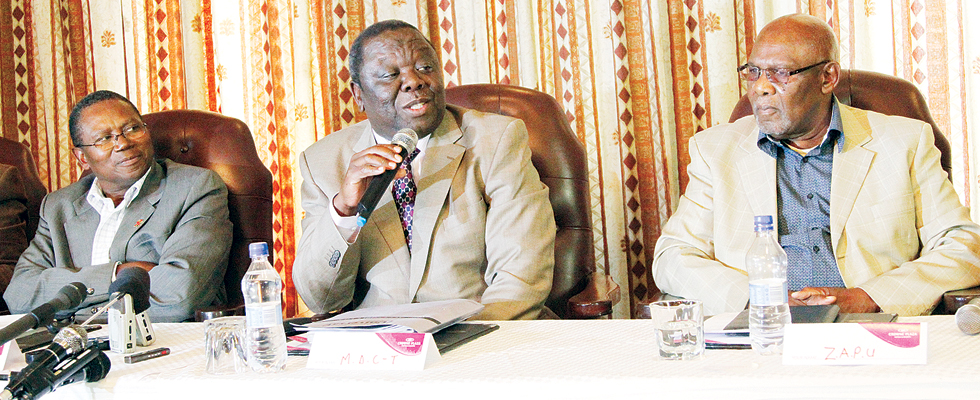
THAT Zimbabwe is in a deep political crisis locked in a stalled transition is not contestable.
Newsday Editorial
Realising that the political patchwork in the form of the Government of National Unity (GNU) is failing to unlock the crisis and move the reform process forward, Zimbabweans are wondering whether MDC-T leader, Prime Minister Morgan Tsvangirai, MDC’s Welshman Ncube, Zapu’s Dumiso Dabengwa, Mavambo/Kusile/Dawn’s Simba Makoni and Zanu Ndonga chairperson Reketayi Semwayo do not need a grand coalition to depose President Robert Mugabe’s Zanu PF system.
Their concerns are legitimate, warrant serious attention from national leaders in the pro-democracy movement — in this case the MDC parties that recently teamed up with other political parties outside the Global Political Agreement (GPA) in a rare coalition to resist Mugabe’s bid to stampede the country into harmonised elections without agreed security sector, media and electoral law reforms. This followed Mugabe’s unilateral proclamation of July 31 as the election date, but they stood their ground and communicated their position to the Sadc extraordinary summit in Maputo, Mozambique, last Saturday.
The pleas by Zimbabweans to unite the pro-democracy forces against Mugabe are as old as multi-party politics in the country.
Political scientists have pointed to the advantages of a united front against a sitting dictatorship before every election. Perhaps, the disputed outcomes of the 2008 elections could have been mitigated by a grand coalition of the two MDC parties.
The failure by any of the parties to win an outright majority set the stage for both a Parliamentary and Executive crisis that was always going to be cramped by polarisation, partisanship, and self-interest at the expense of the national interest.
So why have pro-reform politicians in both parties failed to form such a grand coalition or an informal relationship to work together? What kind of grand coalition will work this time around? Who are its drivers and what chances are there that such a coalition can deliver change?
- Chamisa under fire over US$120K donation
- Mavhunga puts DeMbare into Chibuku quarterfinals
- Pension funds bet on Cabora Bassa oilfields
- Councils defy govt fire tender directive
Keep Reading
It is obvious that outside the framework of the Inclusive Government any of the political parties in the country would face a serious legitimacy crisis if they were to govern without the other. The results of the Parliamentary and Presidential elections of 2008 show that the victory margins between the main political parties were slim.
There is no doubt that the need to unite all forces for the dislodging of dictatorship is obvious to every right-thinking Zimbabwean. There is now evidence that the political forces fare better nationally and internationally if they are speaking with one voice.
While personal differences and ethnic cleavages have contributed more to factional divergence, pro-reform wings in both political parties have so far not done enough in seeking to focus the public on the democratic agenda by embracing all sections of our society within their structures, organisationally and in terms of mobilisation.
If the coalition succeeds in rallying a number of political elites and their supporters together, it may help in securing electoral victory and in the process advance democracy.











